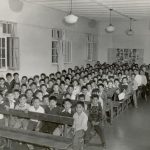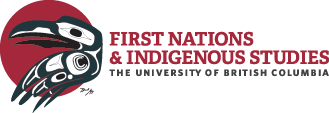Oral Traditions
…anyone who misbehaved, resulting in a number of distinct geological formations throughout S’olh Temexw (or Stó:lō territory). Xe:xals also rewarded individuals who showed exemplary behaviour by turning them into valuable…
Métis
…Free People—Otipemisiwak,” Batoche, Saskatchewan, 1870–1930. Ottawa: National Historical Parks and Sites, Canada Parks Service, 1990. Peterson, Jacqueline, and Jennifer Brown, eds. The New Peoples: Being and Becoming Métis in North…
ILO Convention 169
…“A New Step in the International Law on Indigenous and Tribal Peoples: ILO Convention No. 169 of 1989,” Oklahoma City University Law Review, Vol. 15, No. 3, Fall 1990. 696-710….
Lease Lands Press
…The Westender, January 7, 1999 The Vancouver Sun, January 14, 1999 The Vancouver Sun, January 19, 1999 The Vancouver Courier, January 31, 1999 Terminal City News, February 5, 1999 The…
George Manuel
George Manuel (1921-1989) was an Aboriginal political leader in Canada who held a number of influential roles throughout his career. George Manuel was born February 17, 1921, a member of…
The Residential School System
…were often given numbers, and their days were strictly regimented by timetables. Boys and girls were kept separate, and even siblings rarely interacted, further weakening family ties. Chief Bobby Joseph…

The Residential School System
…were often given numbers, and their days were strictly regimented by timetables. Boys and girls were kept separate, and even siblings rarely interacted, further weakening family ties. Chief Bobby Joseph…
Terminology
…a legal definition. While “First Nations” refers to the ethnicity of First Nations peoples, the singular “First Nation” can refer to a band, a reserve-based community, or a larger tribal…
Constitution Act, 1982 Section 35
…what they understand as their Aboriginal rights, such as hunting or fishing: Although s.35 guides court and government decisions that directly impact Indigenous Peoples, there remain a considerable number of…
Indian Status
…band, and their registration number. “Status Indians” are wards of the Canadian federal government, a paternalistic legal relationship that illustrates the historical imperial notion that Aboriginal peoples are “children” requiring…

